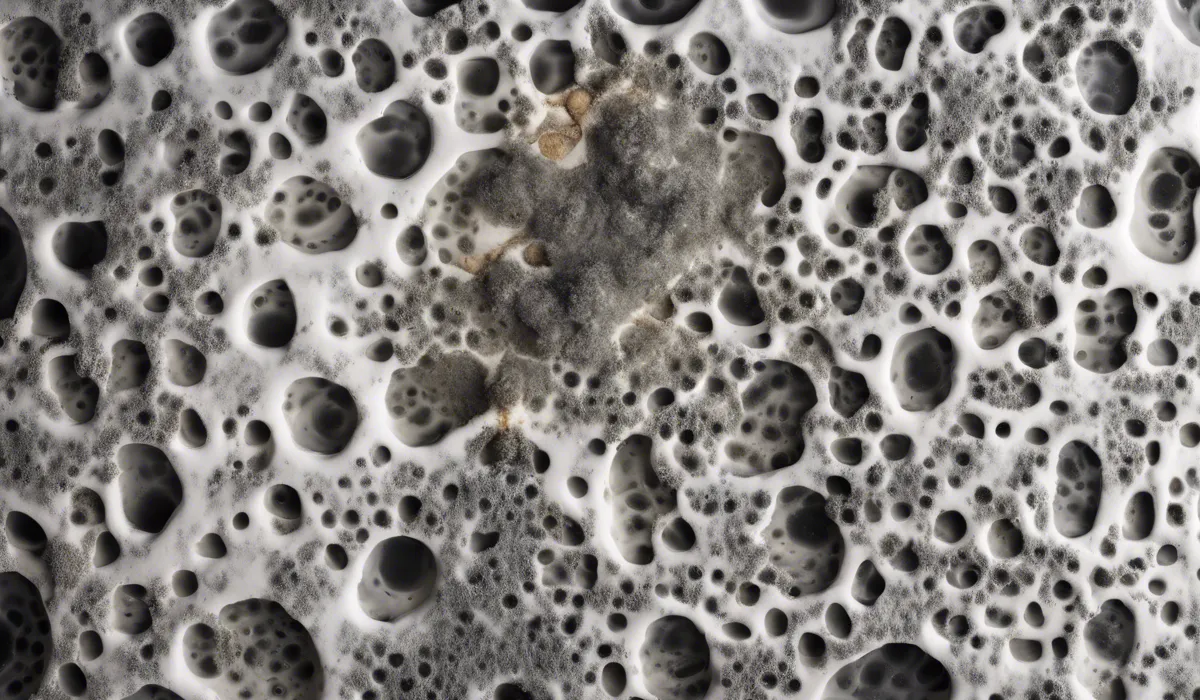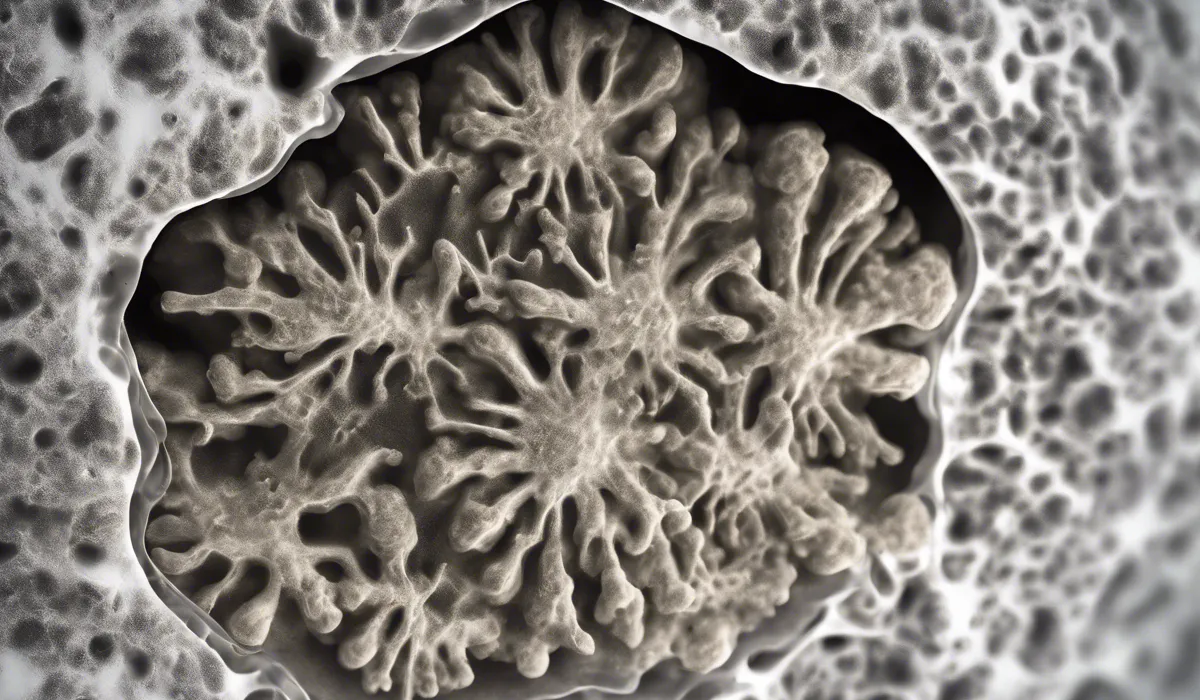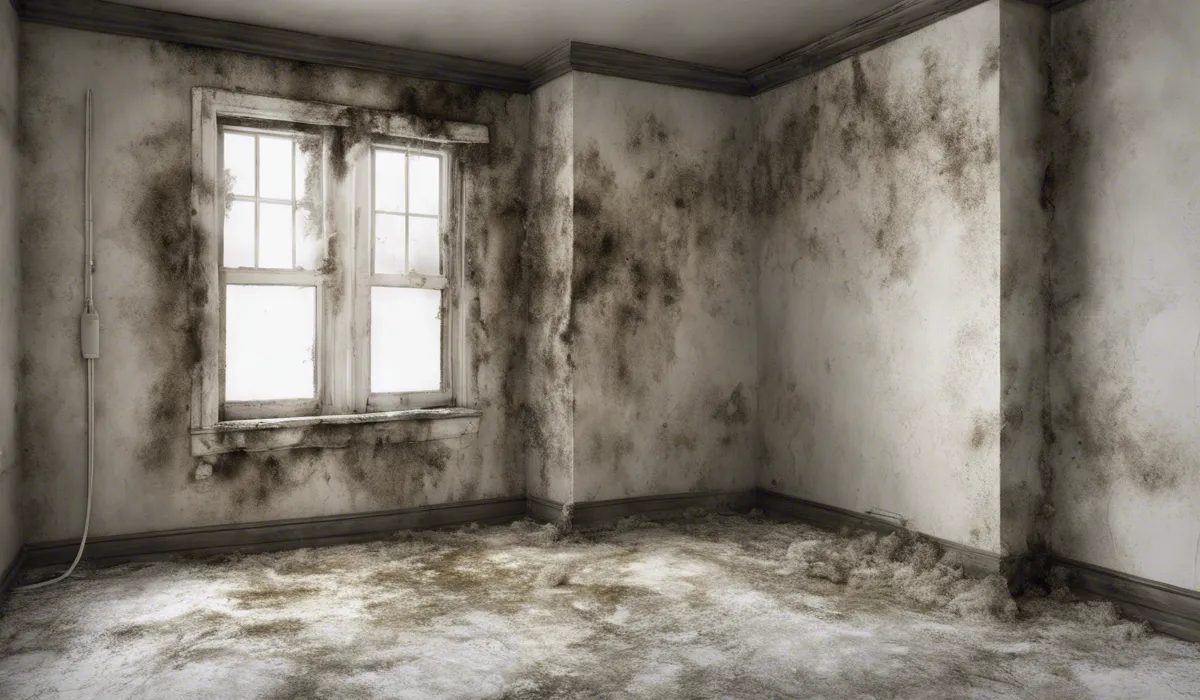Yes, breathing in mold can be dangerous. It may cause respiratory issues, allergies, or infections, especially in those with weakened immune systems or mold allergies. Prolonged exposure can lead to more serious health risks.
Understanding Mold and Its Health Impacts

Overview of Mold: Definition and Common Types
Mold is a type of fungus that can grow both indoors and outdoors. It comes in many forms and colors, like black, white, green, or orange.
Some common types you might have heard of include Aspergillus, Cladosporium, Penicillium, and Stachybotrys, often known as black mold.
These tiny organisms spread by releasing spores into the air, which are too small to see with our eyes alone.
Conditions That Favor Mold Growth
Mold loves damp, warm, and humid places. This means it can grow in places like bathrooms, kitchens, and basements.
It can also grow on many materials, such as paper, wood, and fabric, especially if there’s water damage or leaks. Keeping spaces dry and well-ventilated helps stop mold from growing.
Short-Term and Long-Term Health Effects of Mold Exposure
When you breathe in mold, it can irritate your nose, throat, and lungs right away, causing coughing or wheezing.
Some people might get red or itchy eyes or skin. Over a long time, breathing in mold can lead to more serious problems like lung infections. It can make it hard for you to breathe and make you feel tired or have headaches.
Vulnerable Populations
Some people need to be extra careful around mold. This includes kids, older adults, and anyone with asthma or other lung problems.
These groups can get sick more easily from mold because their bodies might not fight it off as well. They can have more severe symptoms and might need to see a doctor if they’re around mold too much.
Health Risks Associated with Mold Inhalation

Respiratory Issues and Symptoms Caused by Mold Spores
Breathing in mold can make you cough, sneeze, and feel like you can’t catch your breath. It can make your chest feel tight and make it hard to breathe deeply.
These problems happen because your airways get irritated and might swell up when mold spores enter them.
Mold-Related Allergic Reactions and Symptoms
Many people have allergies to mold. This means their bodies react strongly when they breathe in mold spores.
They might get a runny or stuffy nose, itchy eyes, and might sneeze a lot. These symptoms can make it hard for them to do their usual activities and enjoy their day.
Toxic Mold Syndrome
Some molds make poisons called mycotoxins. These can be very harmful if you breathe them in.
They can make you feel very sick, with symptoms like feeling dizzy, having a headache, or even having trouble with your memory. It’s important to get rid of these kinds of mold quickly to stay safe.
The Link Between Mold and Asthma
If you have asthma, mold can be a big problem. It can trigger asthma attacks, which can make it really hard to breathe.
If you’re around mold a lot, it might even make your asthma worse over time. Keeping your home free of mold is super important for staying healthy.
Psychological Effects and Quality of Life Concerns
Living with mold doesn’t just hurt your body; it can also make you feel stressed or anxious.
You might worry about getting sick or how to clean up the mold. These worries can make it hard to sleep or concentrate, which can make your days tough. Staying in a mold-free environment can help you feel better and happier.
Preventing and Mitigating Mold Exposure

Identifying Mold in Your Environment
Knowing what mold looks like and where it grows is the first step to stopping it. Mold can be fuzzy and can be different colors.
Sometimes it smells musty. You’ll often find it in places that are wet or don’t get a lot of fresh air. If you see or smell mold, it’s time to clean it up.
Steps to Effectively Remove Mold and Prevent Its Return
Getting rid of mold means cleaning it up and keeping the area dry. You can use soap and water or special mold cleaners.
After cleaning, make sure to dry the area completely. To stop mold from coming back, fix any leaks and use a dehumidifier to keep the air dry.
Importance of Professional Mold Remediation
Sometimes mold is too much to clean by yourself, and that’s okay. Professionals know how to get rid of mold safely and can help make sure it doesn’t come back.
They have special equipment and know the best ways to clean different surfaces without spreading the mold.
Strategies for Controlling Humidity and Ventilation to Discourage Mold Growth
Keeping the air in your home dry and fresh is key to stopping mold. Use fans in your bathroom and kitchen to pull out moist air.
Open windows when you can to let in fresh air. A dehumidifier can also help by taking extra moisture out of the air, especially in places like basements.
When to Seek Medical Advice for Mold-Related Health Issues?
If you start feeling sick and think it might be because of mold, it’s best to see a doctor. This is especially true if you’re coughing a lot, feel it’s hard to breathe, or if you already have lung problems like asthma.
A doctor can help figure out if it’s mold making you sick and what to do about it.
FAQs About Breathing in Mold
Is it safe to breathe in mold?
No, it is not safe to breathe in mold. It can cause respiratory issues, allergies, or infections, particularly in individuals with weakened immune systems or mold allergies.
What health problems can mold cause when inhaled?
Inhaled mold can lead to respiratory issues, allergic reactions, asthma exacerbations, and infections. Prolonged exposure may result in more severe health complications.
Can breathing in mold have long-term effects?
Yes, prolonged exposure to mold can lead to long-term effects such as chronic respiratory conditions or other serious health issues.
Are some people more at risk from breathing in mold?
Yes, individuals with weakened immune systems, respiratory conditions, mold allergies, or asthma are more at risk when exposed to mold.
How can I reduce the risk of mold exposure in my home?
To reduce the risk of mold exposure, maintain low indoor humidity, ensure proper ventilation, fix leaks promptly, and clean up any mold growth immediately.
Final Thoughts
Breathing in mold poses significant health risks, particularly causing respiratory problems, allergies, and infections.
Individuals with compromised immune systems or pre-existing mold allergies are at increased risk.
Chronic exposure can escalate to severe health issues, highlighting the importance of addressing mold growth promptly and effectively to safeguard health.
